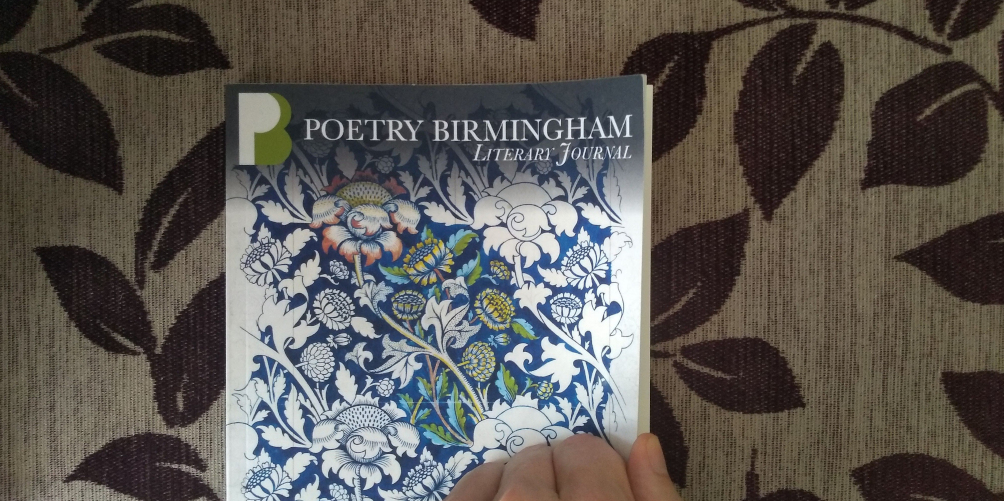
I have two poems in the new issue of Poetry Birmingham. One is from a sequence of remixes of Invisible Cities, blended with notes from my explorations of virtual worlds – in this case the City of Tears in Hollow Knight.
Another poem from this issue which I liked (I haven’t finished reading the whole thing) is ‘Intermission’ by Graham Clifford:
Where you are has not been captured
in an 18th Century grisaille, and your illness
is not distinct enough from what we’ve all got – it has
no attributable mandala composed
by scientists when scientists could see.
‘Grisaille’ is a new word on me, and I’m not sure yet whether the choice is arbitrary – that is, what it has specifically to do with the surrounding conceit. This stanza gestures quite accurately, to my mind, at the modern anxiety of clawing around for a condition which is your own, as a kind of map. The poem starts with the lines “We need to talk about how there is no manual / or film to watch of someone like you”, ie. narrative and instruction so dominate culture that we think of our self as a machine that needs operating or a character arc that needs completing.
Naush Sabah’s editorial, ‘Dis/rupt/ed Schemas’ is a ranging meditation on race, power and change, and this sentence particularly stood out to me:
I am looking at the ‘diversity’ of poetry publishing and seeing melanated variations of the same strata of society from different points of origin around the world.
This reminds me of Kenan Malik’s articles on identity politics, which have greatly informed my views on the subject. I could crudely summarise his position as: getting a representative number of women onto the boards of directors of elite companies does absolutely nothing to help the majority of women. Racism, sexism and other forms of prejudice are embedded in social structures, in the mechanisms of power, and gestures of atonement do not challenge or reform these mechanisms.
I would go further and say that we have a responsibility to resist deference to power in all forms. That means attending to the neglected and tuning out the demands of the already very well-established (the essence of conservatism is the opposite – to preserve the well-established).
The world of intellectual culture, despite its supposed enthusiasm for progressive politics, seems to have a hard time with with this. I think there is a lot tied up in the reverence of artistic and intellectual power, and in the tendency to instruct each other to react with awe. I think, at the heart of this culture, there is a serious problem with casting the artist or the intellectual as an authority, that it has a corrupting effect on people’s aspirations, and has played a significant role in locking people out.